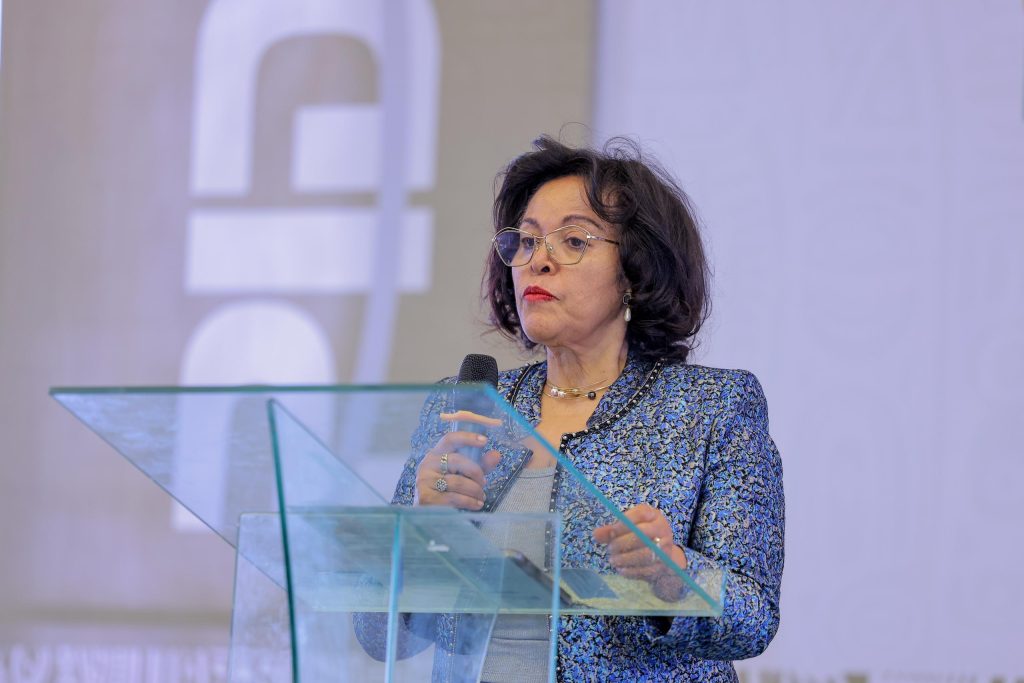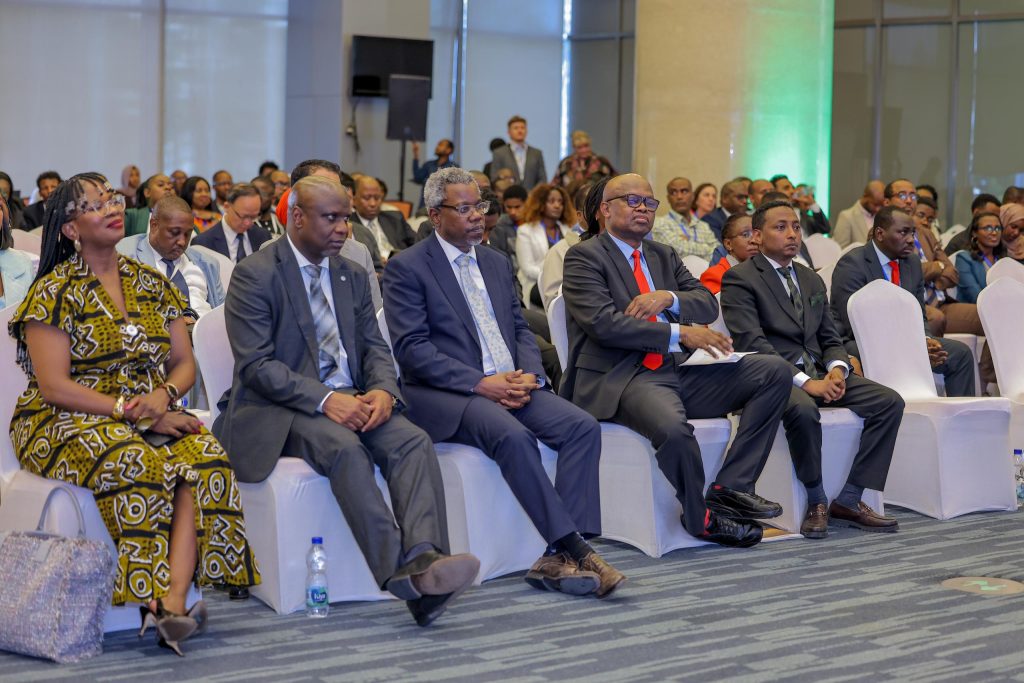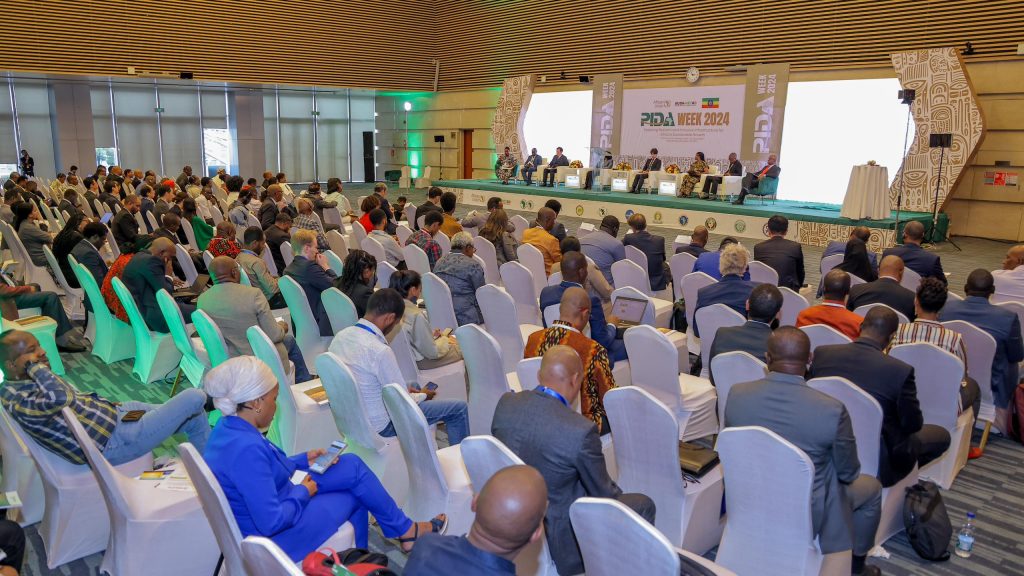Addis Ababa, Ethiopia, 28 November 2024 – After a week-long intensive deliberations and engagements to transform Africa’s infrastructure landscape, the 8th Programme for Infrastructure Development in Africa (PIDA) Week concluded with a resounding reaffirmation of the continent’s commitment to building quality, resilient infrastructure that will accelerate sustainable development and regional integration.
Hosted by the Government of the Federal Democratic Republic of Ethiopia, the collaborative event between the African Union Development Agency (AUDA-NEPAD) and the African Union Commission (AUC) brought together ministers, delegates, development partners, regional economic communities (RECs), private sector representatives, and key stakeholders from across Africa and beyond.
During the week key PIDA regional projects were showcased with a view to benchmarking and accelerating implementation. These included the Lamu Port-South Sudan-Ethiopia-Transport (LAPSSET) Corridor, a flagship project aimed at enhancing connectivity and trade in Eastern Africa by linking Kenya, Ethiopia, and South Sudan through highways, railways, a deep-sea port at Lamu, and other vital infrastructure, with an estimated cost of $25.5 billion.

Other notable projects included the Cameroon-Chad Railway, the Maritime Connectivity of the Comoros Islands, the Abidjan-Lagos Corridor, Transborder Submarine Fiber PoPs, and the Regional Smart Hub Facility and Data Center. The Regional Express Train and Rapid Transit Bus projects, which aim to address urban mobility challenges in Grand Dakar, were also discussed, along with updates on the Cairo-Cape Town Corridor.
PIDA has already made notable strides, providing electricity to over 30 million people and creating 160,000 jobs. Furthermore, significant progress was made in implementing the second Priority Action Plan of the PIDA program, including the modernization and establishment of One-Stop Border Posts, essential for enhancing regional connectivity and trade. However, a substantial gap remains, with only $82 billion mobilized against the $360 billion required to achieve PIDA’s goals by 2040.
PIDA has already made remarkable progress, including providing electricity to over 30 million people and creating 160,000 jobs. However, there remains a significant gap, with only $82 billion mobilized against the $360 billion required to achieve PIDA’s goals by 2040.
“Despite our achievements, persistent challenges in financing, risk perception, and project bankability hinder Africa’s infrastructure ambitions,” said H.E. Mrs. Nardos Bekele-Thomas, CEO of AUDA-NEPAD. She called for a focus on innovative financing mechanisms, such as blended finance and public-private partnerships, to close the gap.
Further accentuating this concern H.E. Dr Amani Abou-Zeid infrastructure and energy highlighted 3% of PIDA project funding has been sourced from the private sector, compared to 16-19% in other regions, adding “It is crucial that we examine the underlying reasons for this gap and explore potential solutions to boost private sector participation moving forward. It is important to deploy all the efforts required to mobilise further public resources.”
The event underscored the critical importance of infrastructure as a foundational pillar for achieving Agenda 2063’s aspirations, particularly Goal 10, which envisions “World-Class Infrastructure criss-crossing Africa.” While officially opening PIDA Week, the Ethiopian President, H.E. Taye Atske Selassie called for renewed commitment to PIDA and emphasised the importance of harmonised policy, partnership and finance. The President singled the power of digital technology and when harnessed could magnify Africa’s potential to revolutionise trade.
H.E. Moussa Faki Mahamat, Chairperson of the African Union Commission, emphasized, “Infrastructure is the cornerstone of Africa’s integration and development. We must leverage partnerships and embrace infrastructure as a high-value asset class to unlock funding from pension funds, sovereign wealth funds, and multilateral development banks.”

Key Highlights from the 8th PIDA Week:
1. Reaffirmation of PIDA’s Significance: The event underscored PIDA as Africa’s strategic framework for achieving the goals of Agenda 2063, particularly Goal 10 – ensuring world-class infrastructure across the continent.
2. Continued Commitment from Partners: The PIDA Week saw active participation from the African Development Bank (AfDB), the World Bank Group, and international partners including the European Union, the United States, Japan, and Germany. Their support remains vital in realizing the infrastructure vision for Africa.
3. The Role of Innovation and Financing: Leaders emphasized the importance of innovative financing solutions, including public-private partnerships (PPPs), impact investments, and blended finance models, to overcome barriers and ensure the bankability of infrastructure projects.
4. Focus on Capacity Building and Climate Resilience: In line with global trends, there was a strong focus on addressing the impacts of climate change on infrastructure, with pledges to enhance capacity building and financing mechanisms for climate-resilient infrastructure across the continent.
5. Commitment to Gender Equality and Youth Engagement: The role of youth and MSMEs in driving innovation in infrastructure was highlighted, with an emphasis on creating entry points for young entrepreneurs and women in the sector.
6. Digitalization and Data Governance: There was a strong push to integrate digital infrastructure, with AUDA-NEPAD launching a report on the state of One-Stop Border Posts (OSBP) across Africa and digital transformation projects to strengthen the continent’s infrastructure landscape.

The event closed with a collective call to action for all stakeholders to commit to Africa’s infrastructure transformation. As H.E. Dr. Alemu Sime, Ethiopia’s Minister of Transport and Logistics, remarked, “Our shared vision for a connected and prosperous Africa requires unwavering political will and innovative solutions. PIDA Week reminds us of what we can achieve together.”
Dr. Amani Abou-Zeid further remarked, “The success of this week’s gathering is a testament to the collective determination of our leaders, partners, and communities to build the infrastructure that will support Africa’s future. We now look ahead to 2025 with renewed energy, focusing on creating more opportunities for collaboration and investment, and ensuring that infrastructure development is a key driver of sustainable and inclusive growth.”
In her concluding remarks, H.E. Nardos Bekele-Thomas expressed gratitude to the people and government of Ethiopia for the hospitality extended to her and the delegates throughout their stay in Addis Ababa. She commended the impressive presence of over 20 partners during PIDA Week, including both existing and new partnerships. She expressed optimism that this growing engagement signifies increasing investor interest in PIDA’s projects and the potential for further investment in the future.
In his official closing remarks at PIDA Week, the State Minister of Transport and Logistics H.E. Bareo Hassen thanked AUDA-NEPAD and the AUC for hosting an excellent event that unites Africa’s vision for infrastructure. He reiterated Ethiopia’s unwavering commitment to developing regional impact projects that strengthen connections between Ethiopia and its neighbouring countries.
The African Union Development Agency (AUDA-NEPAD) seized the opportunity to call on investors, the private sector, and multilateral partners to tap into the growing infrastructure opportunities in Africa. As the 2025 PIDA Mid-Term Review approaches, it’s critical to fast-track efforts to attract investments for projects in the PIDA PAP2 pipeline, ensuring that infrastructure helps unlock Africa’s sustainable development.





